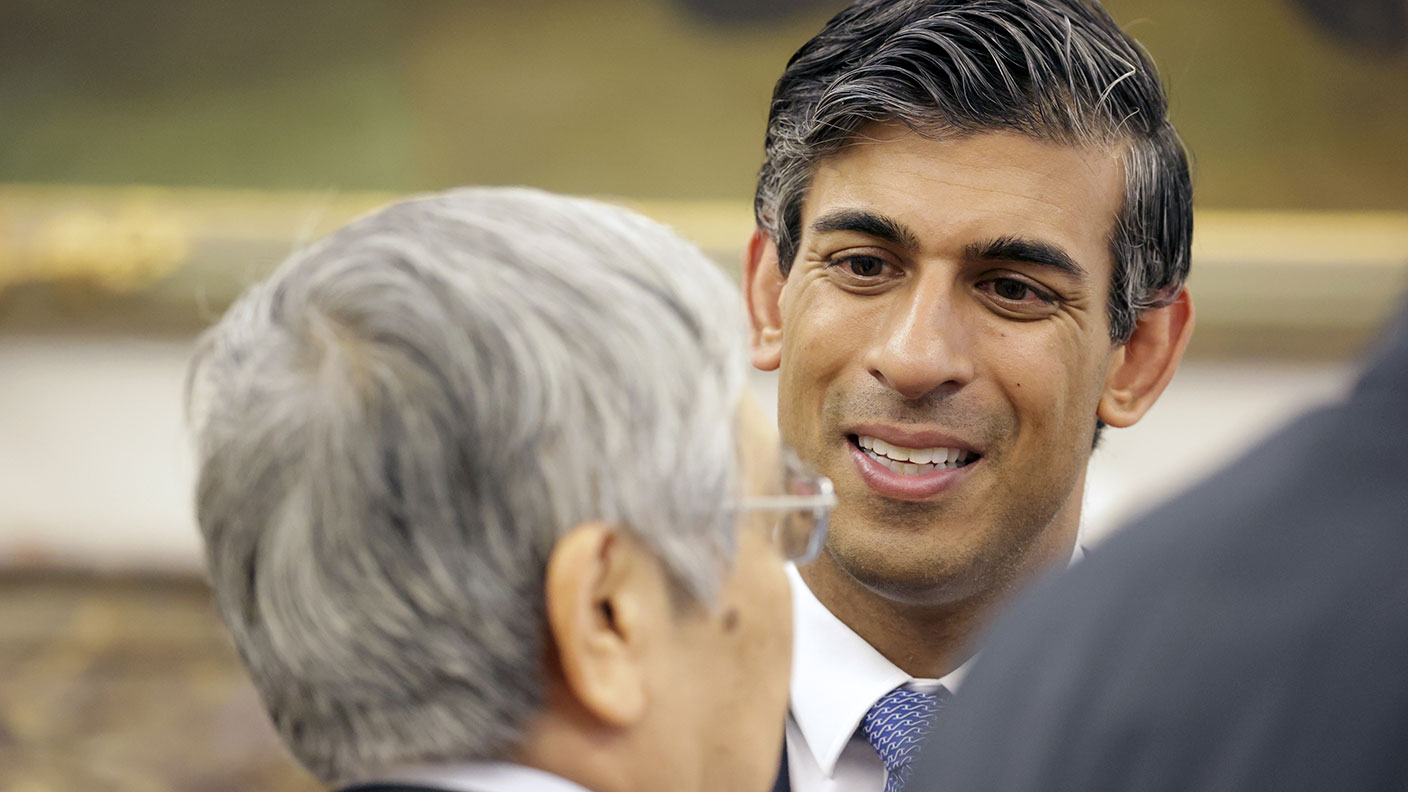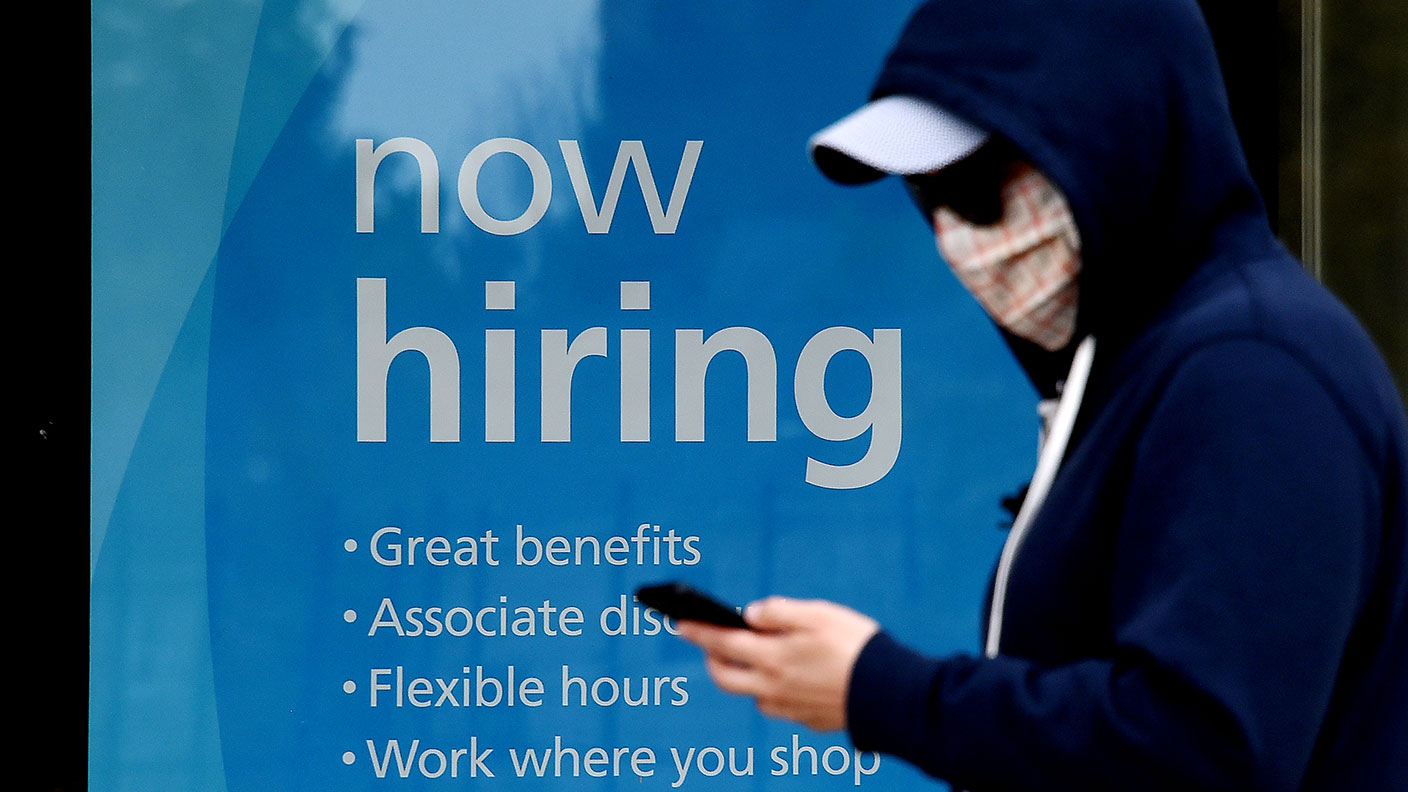Governments have got the message – right or left, a spending binge is coming your way
Politicians of every hue have committed to throwing vast sums of money at their voters. Rampant inflation will eventually make them stop. But for now, says John Stepek, it's sent markets into party mode.

Get the latest financial news, insights and expert analysis from our award-winning MoneyWeek team, to help you understand what really matters when it comes to your finances.
You are now subscribed
Your newsletter sign-up was successful
Want to add more newsletters?

Twice daily
MoneyWeek
Get the latest financial news, insights and expert analysis from our award-winning MoneyWeek team, to help you understand what really matters when it comes to your finances.

Four times a week
Look After My Bills
Sign up to our free money-saving newsletter, filled with the latest news and expert advice to help you find the best tips and deals for managing your bills. Start saving today!

If you're living in the UK right now, it's hard to tear yourself away from the joys of the election campaign.
And given how dispiriting it all is a great deal of finger pointing and confected outrage designed to camouflage some genuinely worrying trends it's easy to feel as though we're in some sort of crisis.
But as investors, you need to take a step back and have a look at what's going on without the emotional overlay (if you can).
MoneyWeek
Subscribe to MoneyWeek today and get your first six magazine issues absolutely FREE

Sign up to Money Morning
Don't miss the latest investment and personal finances news, market analysis, plus money-saving tips with our free twice-daily newsletter
Don't miss the latest investment and personal finances news, market analysis, plus money-saving tips with our free twice-daily newsletter
And the reality is that this has been a remarkably good week for markets overall.
Markets have had a remarkably decent week
This week the S&P 500 in the US has hit new all-time highs. And it's not just the US market. Most global equity markets have had a decent time European markets are up for the fifth week in a row, for example, according to Michael Hewson at CMC.
Meanwhile, bond yields have started to rise from the depths the world now has a few trillion fewer of negative-yielding debt than it did a few short months ago.
Gold has had its worst week in quite some time. One US dollar will now buy you fewer than seven Chinese renminbi, which is a very healthy sign that fear of deflation is decreasing (I'll explain why in tomorrow's Money Morning, where we go through the charts of the week).
In short, it's "risk-on-tastic" as we go into the weekend.
What's going on?
The obvious thing to point to is the wee boost the market got from the apparent thawing in relations between China and the US. Yesterday, one of Chinese negotiators suggested that both sides are looking at removing some additional tariffs "in phases".
But we've heard all this before it's hard to imagine that many people are radically shifting their views on the trade war simply on the basis of the latest statements from either side.
So while the thawing has definitely helped particularly in those markets (like Germany's) that have been hit hardest by the global manufacturing slowdown today's good cheer can't just be down to China and the US trying to be pals again.
I think the real story has somewhat deeper roots. And once again it mostly comes down to the amount of money that's being printed or promised around the globe.
All governments are big spenders today
Let's return to the electioneering in the UK for a minute, much as you might prefer not to.
Immediately after the financial crisis, the election campaign of 2010 was all about debt. The feeling was that we had to get our house in order and pay down our debts, because a financial hurricane had just blown through.
(Obviously, it would have been better to get our finances in order before the hurricane blew through but that's how these things work.)
Whatever you think of "austerity" there are plenty of arguments you could get into there, and that's even before you involve the economists and all their theorising about it the point is that the amount of debt the country had was a very big issue in the election. It might even have been the decisive issue.
Now, in the current election, it's pretty clear that one thing is not on the table fiscal rectitude.
As Bloomberg points out, both Labour and the Conservatives are promising to increase public spending as a proportion of GDP from its already historically high level of just under 40%, to 41.3% (the Tories) or 43.3% (Labour).
Ignore the spurious accuracy of those figures we all know that politicians generally spend more than they promise. The point is that whoever you vote for at the next election, you're going to get a big-spending government (well, at least, unless it's a hung parliament again, at which point the process will start over).
The same is happening over in the US indeed it's even more radical over there.
US president Donald Trump is already a massive spender. That's hardly a surprise, given his background. But I'm led to believe that the Republicans (or a sub-faction of them at least) once pretended to have half an eye on America's balance sheet. It's clear that this idea has gone out of the window.
And of course, the Democrats are largely campaigning on tax and spend policies too.
Indeed, the main difference (seen from the outside at least, and I do appreciate that politics is local) is that the Republicans like to spend money on cutting taxes and pretend to offset that by cutting public services, whereas the Democrats like to spend money on public services and pretend to offset that by raising taxes.
Oh, and Japan is already embarking on its latest stimulus package apparently. As the FT reports, Prime Minister Shinzo Abe has told government officials to produce an "agile" and "comprehensive" stimulus, to "take advantage of ultra-low interest rates and borrow in order to finance public investment."
Even the Germans are starting to inch towards the idea of loosening the purse strings, under intense pressure from the rest of the eurozone.
In short, as Dylan Grice pointed out in my interview with him last week (read it here), MMT, or something like it, is headed our way.
MMT causes lots of arguments on Twitter among economic theorists who seem to shift the goalposts every time you try to pin down what it means.
But the theory is irrelevant. In practice, MMT refers to the government deciding that it can spend what it wants until inflation causes enough havoc to stop it from doing so. And in practice, that's what we're going to get.
So if you're wondering why markets are going up, that's basically what it's down to. Markets have been terrified of deflation. Now every politician around the world and their central bankers has committed to "reflation or bust".
I suspect they'll succeed, and then we'll have a whole different set of problems to deal with, and everyone will blame the actions that were taken right now, for whichever financial crash awaits us in the future.
But for now, markets are in party mode. In terms of what it means for your portfolio, I do suspect that all of the stuff that has been hated in the last few years (simple "value", commodities, etc) will probably have their time in the sun before the bad times hit again.
We'll be discussing all this at the MoneyWeek Wealth Summit on November 22nd make sure you're there!
Get the latest financial news, insights and expert analysis from our award-winning MoneyWeek team, to help you understand what really matters when it comes to your finances.

-
 Average UK house price reaches £300,000 for first time, Halifax says
Average UK house price reaches £300,000 for first time, Halifax saysWhile the average house price has topped £300k, regional disparities still remain, Halifax finds.
-
 Barings Emerging Europe trust bounces back from Russia woes
Barings Emerging Europe trust bounces back from Russia woesBarings Emerging Europe trust has added the Middle East and Africa to its mandate, delivering a strong recovery, says Max King
-
 Is the US in recession and does it matter?
Is the US in recession and does it matter?Analysis There's a heated debate over whether the US is in recession or not. But why does it matter? John Stepek explains
-
 Has the chancellor done enough to save the UK from recession?
Has the chancellor done enough to save the UK from recession?Analysis UK Chancellor Rishi Sunak announced a new package last week to ease the cost of living crisis. John Stepek explains whether the risk of a UK recession still remains.
-
 Is the UK too open to overseas takeovers?
Is the UK too open to overseas takeovers?Analysis Data shows that the UK is more open to overseas takeovers than other major markets. John Stepek asks: should investors care?
-
 How to manage your money as inflation just keeps rising
How to manage your money as inflation just keeps risingAnalysis Uk inflation is at a 30-year high – and it won't be falling any time soon. So what can you do? John Stepek explains how to manage your money to combat rising prices.
-
 Inflation is going to stay even higher for even longer
Inflation is going to stay even higher for even longerAnalysis Commodity prices – everything from energy to food – are going through the roof. And that’s not likely to end any time soon, says John Stepek. Here's what that means for how you invest.
-
 Inflation is incredibly inconvenient, as we’re all about to learn
Inflation is incredibly inconvenient, as we’re all about to learnAnalysis Inflation doesn't just eat into your wealth, it eats into your time – and can be devastating for those on the lowest incomes. And it's not going away any time soon, says John Stepek. Here's how to invest.
-
 The cost of living crisis is global – US inflation just hit another 40-year high
The cost of living crisis is global – US inflation just hit another 40-year highAnalysis With US inflation running at 7.5%, it’s clear that the cost of living crisis is not confined to the UK. John Stepek looks at the likely reaction from governments and central banks, and what it means for you.
-
 The strong US jobs report is good news for the economy, but not so much for markets
The strong US jobs report is good news for the economy, but not so much for marketsAnalysis January's US jobs report came in much stronger than anyone was expecting, with 467,000 new jobs added to the economy. But things might not be quite as rosy as they seem, says John Stepek. Here's why.